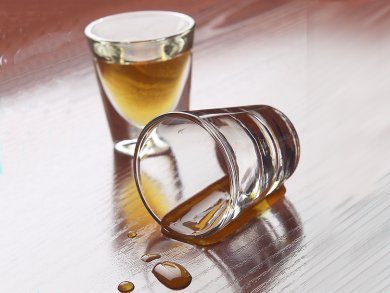Artificial complexes among enzymes endowed with synergic or complementary functions are highly desirable as they enhance the efficiency and specificity of enzymatic reactions. Creating such structures remains, however, challenging.
Yang Liu, Nankai University, China, and colleagues developed a new strategy to fulfill this task. The researchers conjugated single-strand DNA molecules to inhibitors of enzymes exerting complementary reactions, such as alcohol oxidase and catalase. The DNA assembly induced the creation of a DNA-inhibitors scaffold which could bind the target enzymes, thereby leading to the formation of double-enzymes complexes. Subsequently, the scientists encapsulated these structures into a thin polymer shell and removed the DNA-inhibitors scaffold. In this way, they obtain robust enzymes nanocomplexes which efficiently reduced blood alcohol levels when administered to intoxicated mice.
- Biomimetic enzyme nanocomplexes and their use as antidotes and preventive measures for alcohol intoxication,
Y. Liu, J. Du, M. Yan, M. Y. Lau, J. Hu, H. Han, O. O. Yang, S. Liang, W. Wei, H. Wang, J. Li, X. Zhu, L. Shi, W. Chen, C. Ji, Y. Lu,
Nat. Nanotechnol. 2013.
DOI: 10.1038/NNANO.2012.264
Also of interest:
- Chemistry of a Hangover — Alcohol and its Consequences,
Klaus Roth,
ChemViews Magazine 2011, May.
DOI: 10.1002/chemv.201000074
How can a tiny molecule like ethanol be at the root of so much human misery?



